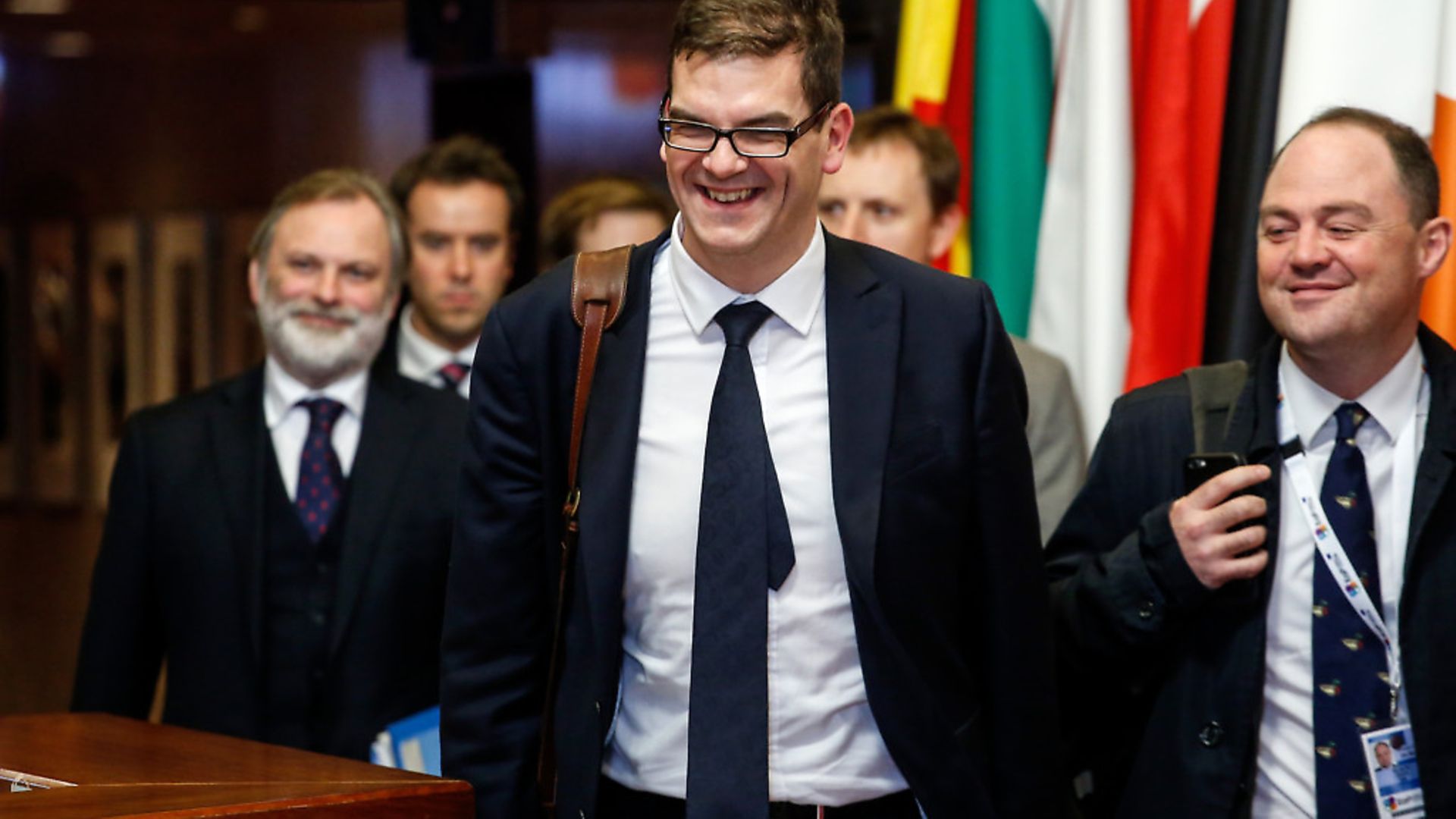
The New European’s columnist JAMES BALL argues that we need to start working out who to blame when Brexit doesn’t go to plan
Remote and alien as the possibility may seem, but there is at least a theoretical chance that Brexit won’t go to plan and the UK won’t have a comprehensive, better-than-EU-membership, new deal with the EU in place by March 2019.
The question becomes who should get the blame if that proves to be the case. It is much easier to guess who will throw blame at who – pro-Remain supporters will (rightly) suggest Leave campaigners deserve a share of blame for unrealistic expectations.
Others will blame Theresa May for failing to deliver, or blame the electorate for failing to give her a majority that can deliver any kind of decent Brexit. And inevitably plenty of people will try to blame ‘saboteurs’, ‘remoaners’ and ‘traitors’ for sabotaging Brexit.
Beyond the political blame game, though, trying to work out who’s actually responsible for Brexit is nearly as complicated as Brexit itself. Superficially, there’s an easy answer: Theresa May created a new department – the Department for Exiting the European Union (DexEU) – which was intended to oversee the Brexit process, overseen by David Davis.
So far, so simple, right? Not so fast. While DexEU initially actually did have responsibility for conducting the Article 50 negotiations with the European Commission, it no longer has that responsibility.
The department’s initial chief civil servant, the well-regarded Oliver Robbins, is the UK’s lead Sherpa (negotiator) in the Article 50 talks, but following reported clashes with Davis, Robbins moved back to Number 10 to work directly for the Prime Minister.
Robbins now has a team of around 20 officials working out of Number 10 supporting him in the negotiation process – so who carries the can for the talks? The hundreds-strong Brexit department, or the smaller unit nearer the centre of power overseen by the chief negotiator?
Things get even more tangled when we remember that Liam Fox is once again in the Cabinet, following Theresa May’s decision to create a new department for him when she became prime minister. Despite the UK being unable to negotiate any new trade deals while it’s part of the European Union, or even while it’s part of the single market and customs union (as it would be in transition), May created a department for international trade for Fox.
From March, the UK’s exit negotiations move away from issues like the so-called divorce bill, and citizens’ rights, to the future trading relationship between the UK and EU. So what role does Fox’s department actually have in managing that? If the Department for International Trade isn’t involved in – or, realistically, isn’t overseeing – these once-in-a-generation critical trade talks, it becomes clear the department exists as little more than a vanity project. But if the Brexit department, or the unit within Number 10, isn’t overseeing the exit talks any longer then their existence begins to seem similarly pointless. So who’s running what?
This gets messier when we start looking at who’s responsible for planning what happens if these talks collapse. Pro-Brexit Conservatives have been pushing for a ‘minister for no deal’ since very early in the Brexit process, to try to demonstrate the UK would be ready and able to walk away from the table in a cliff-edge Brexit – a bluff the EU is unlikely to believe, but one Brexiteers would like to be able to make.
Last weekend, ahead of Theresa May’s car crash of a reshuffle, there were rumours the prime minister would make the ‘minister for no deal’ a cabinet role, further muddying the waters. In the event, May did not do so – but in practice, the role has existed for months, albeit at a much more junior level.
Within the Brexit department there is a parliamentary under-secretary of state – the lowest rung on the ministerial ladder – who has responsibility for ‘contingency planning’, in practice making him the minister for no deal. Since June, that role was held by Steve Baker, a strongly pro-Brexit true believer who said people would ask ‘whose side’ the Labour party was on when it challenged the department over publishing impact assessments.
Each department is having to make simultaneous plans for hundreds of different processes following Brexit, for scenarios with a deal and with no-deal. Between the muddied accountability of each department having responsibility for its own areas of expertise, a specialist minister for contingency planning, a Brexit secretary, a chief negotiator, a trade minister, and the prime minister herself, we have… a mess.
As a letter from David Davis to Theresa May, leaked to the Financial Times, showed this week, the EU is making advanced preparations for a no-deal scenario – which could cost the UK dear. Davis notes the EU has ‘adopted a number of measures that put agreements or contacts at risk of being terminated in the event of a ‘no deal’ scenario and/or would require UK companies to relocate to another Member State’.
The stakes are clearly high, and the EU is clearly making plans for no deal. If the UK has any realistic planning in place for such a scenario, it’s time to show its hand – and if not, we need to try to work out who on earth to blame.
Warning: Illegal string offset 'link_id' in /mnt/storage/stage/www/wp-includes/bookmark.php on line 357
Notice: Trying to get property 'link_id' of non-object in /mnt/storage/stage/www/wp-includes/bookmark.php on line 37







